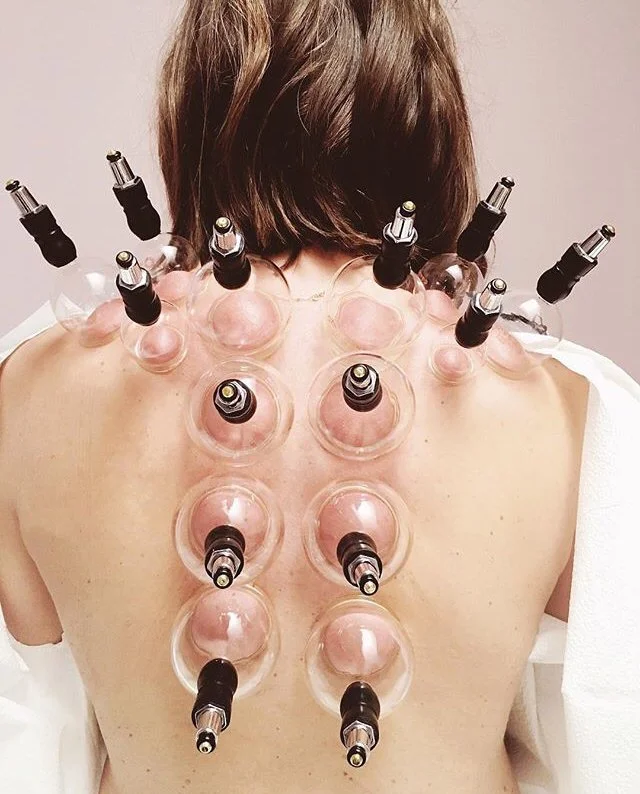Hormone Health Q & A with Rachelle Robinett & Almila Kakinc
Introduction
Rachelle Robinett is the herbalist behind Pharmakon Supernatural — a New York-based, globally-spirited company dedicated to modern herbalism education and accessible holistic health care. She is also a past contributor of The Thirlby with her two-part series on adaptogens, which you can read here. Almila Kakinc is our founder, author of the book The Thirlby, and a Johns Hopkins-trained Labour & Delivery nurse with a background in Integrative Health from Duke Medicine. Below is a Q & A conversation between Almila and Rachelle on hormone health.
Rachelle has generously shared a discount code to apply for any of her online classes. Peruse her offerings in the link below and use the code THETHIRLBY20 at checkout for a discount!
Q Hormone imbalances can manifest in a myriad of ways that do not directly signify themselves, such as through menstrual irregularities, cramps, or breast tenderness. What are some symptoms you see often in your practise or look for hormones to be the culprit?
A Counterintuitively, maybe, I am rarely looking for hormone imbalances as the culprit of my clients’ symptoms because: 1. I find that awareness about the idea of hormone imbalance (whether in general or specifically as something like estrogen dominance, for example) is very high. Most often, my community is ascribing plenty of symptoms to hormone imbalance. So, we don’t have to go looking for it as a cause that might not have been considered. And, 2: Hormone imbalance is typically a symptom, not a cause. Or, another way to think of it is that it’s one domino in a line that are each caused by something before it, and each are causing their own symptoms. The most productive way to approach hormone balance, in my experience is to understand if it’s actually occurring (get your hormone levels tested) and then treat the cause(s), which are most often: Diet, lifestyle (high stress, poor sleep), caffeine and alcohol consumption, age-related changes and hereditary factors, if present. Diet and lifestyle are by far the most important elements in that list.
But! To answer your question: Common symptoms of hormone imbalances can be: Cyclic skin issues (hormone acne, for example), severe PMS symptoms, body composition and metabolic challenges, fertility issues, sleep disturbances, mood imbalances.
Q In my practise and study infusing allopathic and herbal medicine, I have observed that hormonal imbalances are also in tandem with imbalances in the liver meridian, with the liver having a difficult time detoxifying external sources of hormones such as phytoestrogens. Likewise then with the gut for proper digestion then expulsion. What interactions have you seen in between hormonal imbalances and other body systems?
A You said it! I go straight to liver function and gut health when working to restore hormone imbalances. There are herbs I love (Vitex and Black Cohosh, for example) but I basically never recommend “hormone balancing” herbs without liver support at the same time and I never recommend any herbs without first addressing food. (I put “hormone balancing” in quotes because it sounds appealing but we should remember that balance is different for everyone. Vitex is great for certain folks, but that doesn’t mean it’s going to balance your hormones. A little research, testing, or even one conversation with a natural healthcare practitioner can go a long way in making sure we’re using the right remedies for our unique situations.)
And a note on food since I’m so adamant about it: More plants, less (or no) processed food is a great high-level goal. The more sugar we eat (all forms of flour count, in my book, even if they’re gluten free), the more likely we are to cause problems. We need way more fiber (30g+ per day, especially of the soluble kind) and water (half our body weight in ounces of water per day). Making produce — fruits and vegetables — the majority of every meal changes lives. And, movement. The effects of exercise, even walking, are profound. Choices like these may make herbs or additional “hormone balancing” supplements totally unnecessary!
Q What are some top endocrine system-nourishing foods and herbs in your practise?
A Vegetables first, of any and all kinds. For anyone transitioning away from a lot of flour or over-consumption of grains and legumes (a conversation for another day!), I recommend all the starchy vegetables: sweet potatoes and yams; squashes, pumpkin, cassava and plantain. When we’re eating plant-based, and it’s produce-based, it tends to be more about what we’re not eating that’s helpful (processed food, sugar, poor quality meats, lots of flour, or beans and rice on repeat).
Herbally, it will depend on which hormones we’re working to balance. For estrogen-progesterone levels, I’m often working with vitex, black cohosh, licorice, motherwort, and sage (especially together). For supporting testosterone levels, I look to pine pollen and maca, fenugreek and tribulus. Fenugreek and maca can also be helpful for supporting fertility — though so, so much goes into that process. For liver support of hormone balance I love milk thistle and dandelion. Classic! Also greens — spirulina and wheatgrass, green juices and eating them. I eat greens in some form at basically every meal.
It’s also important to note that we’ve been assuming this conversation is about sex hormones, but hormone balance and the endocrine system include sex and stress hormones as well. We’ll save those for another time but, as just one example, ashwagandha — which we love for its support of healthy cortisol levels — can have a roundabout effect on estrogen balance too, because there’s a very direct connection between estrogen and cortisol. Just like there’s a strong link between body-fat levels and estrogen. It’s all connected … !
Q What are some financially accessible and easy ways anyone can support their hormonal health?
A Eat as well as you can afford to. Limit caffeine and alcohol consumption. Replace processed sugars with fruit. Drink lots of filtered water. Try to sleep enough, and on a regular schedule. Consider breathwork or any mindfulness practice that helps you feel less stressed. Walk as often as possible.
Q Hormone health usually revolves around conversations on menstrual cycles—what are signs that males should look for in terms of imbalances and ways they can support endocrine health?
A For anyone, I really do recommend having hormone levels tested if there’s any question about where they are. Outside of that, hormone imbalances for males may manifest as mood swings or uncharacteristically pronounced emotions (from anger to apathy), libido, fertility, acne or other skin issues, trouble sleeping, muscle maintenance and beyond. It’s not always obvious when hormone imbalances are present, because of the nuanced ways in which they may present themselves.


